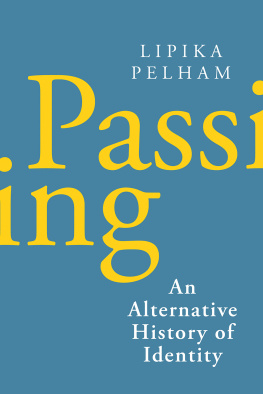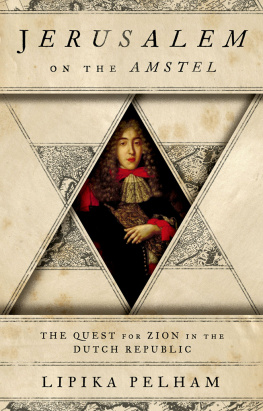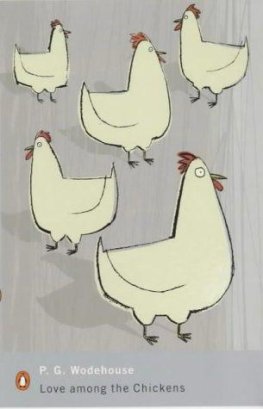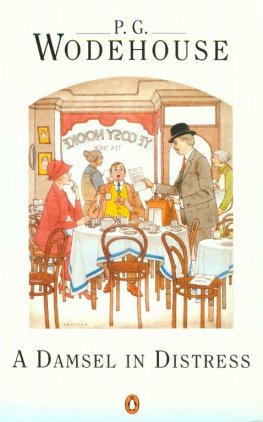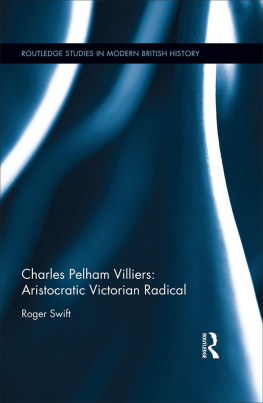Lipika Pelham - Passing: An Alternative History of Identity
Here you can read online Lipika Pelham - Passing: An Alternative History of Identity full text of the book (entire story) in english for free. Download pdf and epub, get meaning, cover and reviews about this ebook. year: 2021, publisher: C. Hurst & Co., genre: Politics. Description of the work, (preface) as well as reviews are available. Best literature library LitArk.com created for fans of good reading and offers a wide selection of genres:
Romance novel
Science fiction
Adventure
Detective
Science
History
Home and family
Prose
Art
Politics
Computer
Non-fiction
Religion
Business
Children
Humor
Choose a favorite category and find really read worthwhile books. Enjoy immersion in the world of imagination, feel the emotions of the characters or learn something new for yourself, make an fascinating discovery.
- Book:Passing: An Alternative History of Identity
- Author:
- Publisher:C. Hurst & Co.
- Genre:
- Year:2021
- Rating:4 / 5
- Favourites:Add to favourites
- Your mark:
- 80
- 1
- 2
- 3
- 4
- 5
Passing: An Alternative History of Identity: summary, description and annotation
We offer to read an annotation, description, summary or preface (depends on what the author of the book "Passing: An Alternative History of Identity" wrote himself). If you haven't found the necessary information about the book — write in the comments, we will try to find it.
Passing: An Alternative History of Identity — read online for free the complete book (whole text) full work
Below is the text of the book, divided by pages. System saving the place of the last page read, allows you to conveniently read the book "Passing: An Alternative History of Identity" online for free, without having to search again every time where you left off. Put a bookmark, and you can go to the page where you finished reading at any time.
Font size:
Interval:
Bookmark:

LIPIKA PELHAM
An Alternative History of Identity

First published in the United Kingdom in 2021 by
C. Hurst & Co. (Publishers) Ltd.,
41 Great Russell Street, London, WC1B 3PL
Copyright Lipika Pelham, 2021
All rights reserved.
Printed in the United Kingdom
The right of Lipika Pelham to be identified as the author of this publication is asserted by her in accordance with the Copyright, Designs and Patents Act, 1988.
A Cataloguing-in-Publication data record for this book is available from the British Library.
ISBN: 9781787383814
This book is printed using paper from registered sustainable and managed sources.
www.hurstpublishers.com
For Rishi, Sara Radha and Arun:
Not mixed, not half this and half that; you embody equally two heritages.
PART ONE
STRADDLING THE COLOUR LINES
PART TWO
BENDING THE BINARIES
PART THREE
BEYOND HERITAGE
PART FOUR
TRESPASSING
When I first started thinking about writing a book on the history of identity performance, I had no idea what a colossal challenge it would soon become. During the first stage of my research I became immersed in racial and socio-cultural examples, voraciously reading stories of black-to-white, lower-class to upper-class passing in the mid-nineteenth-to early-twentieth-century literature and public records. I studied Hollywood films of the interwar period, when the industry thought it was going through a progressive period of social realism, and optically white black people passing featured as a mainstream theme. Unsurprisingly, in the first draft, race and class dominated.
As I went back further into the past, the history of performing identity revealed the Victorian-era reverse-passing, when the act of identity assumption was usurped by the likes of Richard Burton and Rudyard Kipling: the former a diehard faker and manipulator, the latter somewhat caught between colonial duty and human confusion.
And it was human confusion, or rather blurred lines, around identity that got me talking to Michael Dwyer of Hurst Publishers about writing a book on passing, in the context of the Indian subcontinents religion, class and caste communities. I told Michael about an unpublished novel loosely based on my late fathers quest for identity, Seven Seas Thirteen Rivers. He asked if I would be willing to extract the actuality from the text and zoom out to a much broader history of the self. That was in 2018. I am grateful to Hurst for giving me the opportunity to delve into two years of intellectual lockdownwhich then extended into that of the coronavirus pandemicto complete this book.
More and more types of passing that I hadnt covered in my initial reading kept popping up, throwing me into a dizzying world where it seems that were all performing identity, in one form or another. But no areas posed a greater challenge than those of gender and sexuality. At one point I even wanted to leave these chapters out, because of the complex sensitivities around them, both historically and in our time. My wonderful editor, Lara, and my daughter Sarawhos now 18came forward to help me out. I shall get back to Lara, but let me first say that, without my daughters help, I would not have been able to navigate todays gender and sexuality debates among the very young: she unfolded before me the intricacies of pronouns, gender-neutral spaces, and many incredible soundtracks, from Sampa the Great to the other final forms born of our current ages chosen identities and pride in melanin. Also, how would I have finished the final draft, Sara, had you not taken over home-schooling your little brother during the first two months of the UKs Covid lockdown?
As I describe in the last chapter of this book, in the world of performing arts, black people and other people of colour were once openly caricatured; and the usurpation and erosion of their identities and experiences have since continued, much more subtly, in the toxic trends of whitewashing and pass-casting: on todays stages and screens, most roles are still played by white, cis and straight actors, even when the character was originally from a minority. I would like to thank my eldest son, Rishi the film-maker, for his valuable insight into the film industry, where race-passing is still permitted in the name of art, and for sharing his experience and that of his colleagues who are racially ambiguous.
Another small person who has been unbelievably interested in my chapter on passing in the performing arts is my youngest, Doctor Who-obsessed son, Arun, who came up to me one day saying, Did you know the new Doctor is a woman, who didnt know after regenerating that he had become a she?
Different sex. Same person. The famous Woolfian phrase fluttered about me as trans artist Sophie and her trans partner Jess took me around the Liverpool quayside. Thank you both.
I am grateful to West Yorkshire Archives and Zohrah Zancudi, Director for Public Services at Calderdale Council, Halifax, for letting me into the library outside opening hours and showing me Anne Listers diaries. Also, Id like to thank the kind caretaker who allowed me into Shibden Hall when it was closed to the public due to renovations.
Thank you, Tirtsah Levie Bernfeld, for once again helping me evoke the tragic identity performances of those wandering, shape-shifting Sephardi Jews in Iberia and Europe during World War II. I am very grateful to Heide Warncke, curator of the Ets Haim Library in Amsterdam, for connecting me to images that could illustrate the death awaiting Jews whose collective passing in Spain and Portugal had failed to spare them the Inquisition. In that connection, thank you to Anton Kras of the Jewish Historical Museum, Amsterdam.
My gratitude to Rabbi Shulamit Ambalu is indescribable: for welcoming me into the community when I came back to London from Jerusalem in 2013, and for her most insightful observations about my childrenthe dedication quote is hers.
I would like to thank the wonderful Dr Alix Agret, for introducing me to Josephine Baker, and enlightening me with her expertise on 1920s Paris and its dalliance with darker-skinned models and performing artists. Thank you, Rahul Sarnaik, for dropping Mezz Mezzrow during a nightly debate on white artists identifying as black. Sam Mills, for being there in the initial brainstorming session for a subtitleAn Alternative History of Identity fit so well. Hugh Fraser, for relentlessly telling me multifarious passing tales: from Tiresias to the preposterous Dutch age-passer, Emile Ratelband.
Rafiq Husseini, thank you for taking the time while you were in Amman to reply to my frantic queries about the Palestinians fractured identity since the IsraeliPalestinian conflict began in the 1920s. Fida, as always, I am proud of you. You continue to weave a better yarn for your people, even though you now live in North America, proving how geographical shift is sometimes vital for preserving the remains of our shattered selves. No doubt Trudeaus Canada will be much enriched by your presence.
Beatrix (Payne), thank you for sharing over lunches your South African childhood, and the absurd racial categorisations you witnessed in the 1980s and 90s, and also for the book tips. Lois Thomas lent me several by her colleague, psychoanalyst M. Fakhry Davidss booksthese, as well as Loiss own explanations, were invaluable in unpacking the complex terrain of internalised racism.
Font size:
Interval:
Bookmark:
Similar books «Passing: An Alternative History of Identity»
Look at similar books to Passing: An Alternative History of Identity. We have selected literature similar in name and meaning in the hope of providing readers with more options to find new, interesting, not yet read works.
Discussion, reviews of the book Passing: An Alternative History of Identity and just readers' own opinions. Leave your comments, write what you think about the work, its meaning or the main characters. Specify what exactly you liked and what you didn't like, and why you think so.

